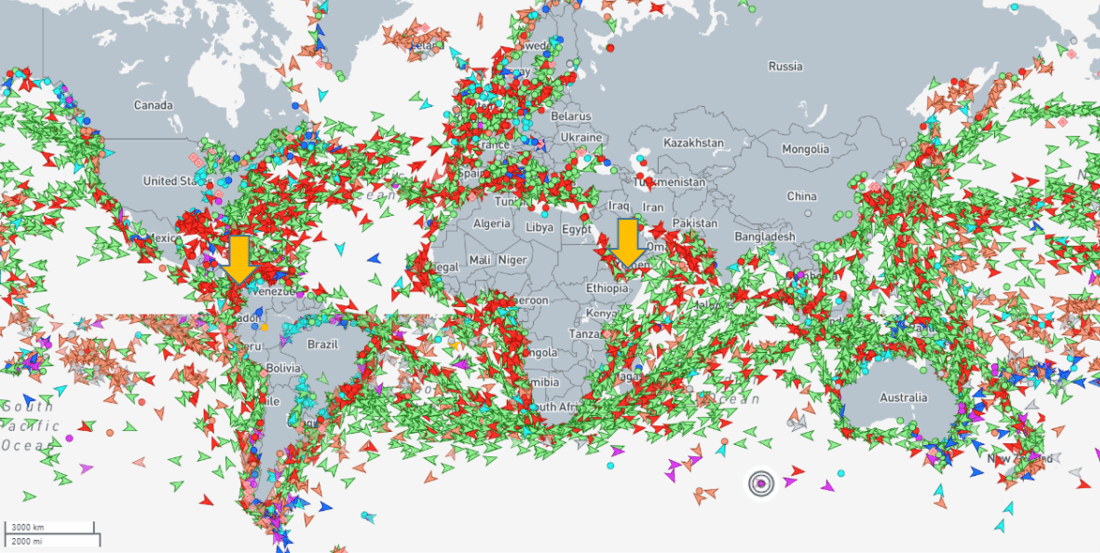The radical intensification of the Israeli-Palestinian conflict since the October 7 attacks is set to disrupt international shipping. On December 18, 2023, an MSC commercial vessel was attacked by Houthi rebels in the Bab El-Mandeb Strait, a strategic point off the coasts of Yemen and Djibouti. Houthi rebels, in support of the Palestinian people, block incoming traffic on the Red Sea with drone and missile attacks.
The Suez Canal, which links the Indian Ocean and the Mediterranean via the Red Sea, sees the transit of 30% of world trade in containerized goods, particularly for Asia/Europe flows. It is also a major transit point for hydrocarbons (11% of world oil exports). Numerous acts of piracy in the Gulf of Aden have for years justified significant increases in ship insurance premiums.

Source : MarineTraffic
Global shipping lines MSC, Maersk, CMA CGM and Yang Ming Line have decided tointerrupt their Red Sea traffic and bypass Africa via the Cape of Good Hope, forcing them to considerably extend their distances.
– On the tariff front, freight rates, already on the rise following the COVID-19 crisis and the war in Ukraine, are set to rise following the events in the Red Sea, which followed a calm period, with an elastic effect. An environmental surcharge has been added to the fares of all shipping lines from January 1.
– In terms of lead times, transit times are expected to increase by 20%. These transit times will increase between Asia and Europe, and will mainly affect services to and from Europe, the Middle East and Africa.
For Le Havre, the additional transit time is estimated at 12 days, and for Marseille Fos at around 20 days.
At the same time, the capacity of the Panama Canal between the Americas has been reduced by 30 to 40% compared with last year, due to the drought affecting the region. Flows between California and Europe are impacted.



